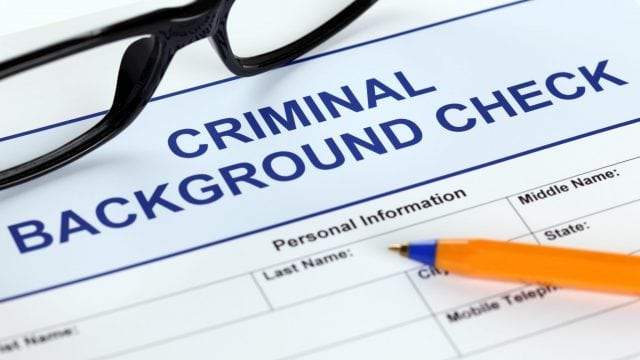Expedited Expungements in New Jersey – FAQs
As of October 2022, there is a substantial backlog in the processing of expungement petitions in the State of New Jersey. At the time of the writing of this article, expungements in New Jersey take anywhere from two to two and a half years from start to finish to complete.
At Katherine O’Brien Law, we are doing everything possible to attempt to have our client’s expungements processed as quickly as possible. Despite reaching out to the judges, the county prosecutors, and the New Jersey State Police (“NJSP”) to push our client’s expungements through the system, we are being informed that the courts/county prosecutors are waiting for the NJSP to complete their review of your expungement.
Moreover, although we have reached out to the NJSP numerous times regarding our clients’ expungements, that agency is currently experiencing a substantial backlog in the processing of expungement applications. The NJSP reviews expungement cases on a first-come, first-served basis – with no exceptions.
To expedite the processing of our client’s expungements, the New Jersey expungement lawyers at Katherine O’Brien Law have been filing motions with the courts to try to get the courts to order the NJSP to process our client’s expungements quicker.
Below, you will find some Frequently Asked Questions (FAQs) that further explain the motion that our office has been filing with the courts.
Why Is There A Backlog in the Processing of Expungements in New Jersey, and How Long Are Expungements Currently Taking?
As of October 2022, expungements in the State of New Jersey are taking approximately two years from start to finish to complete. Unfortunately, with every month that goes by, the timeframe for processing expungements continues to get worse and worse. This delay is largely due to the New Jersey State Police (“NJSP”).
The NJSP is the agency that is in charge of running a background check on you once your expungement has been filed with the court to ensure that: (1) you have disclosed your entire criminal record; and (2) you are eligible for expungement. If the NJSP determine that you have not disclosed your entire record and/or that you are not eligible for expungement, they will send a letter to the Judge assigned to handle your expungement, informing the Judge that they are objecting to your expungement.
In addition to the above duties, once the judge grants your order of expungement, it is the NJSP who is tasked with actually removing the expunged records from your criminal history in compliance with the expungement order. Thus, the NJSP plays a vital role in the expungement process, both before the court enters an order of expungement and after the order is entered.
Unfortunately, the NJSP has become increasingly backlogged, and their backlog has substantially impacted the processing time for expungements in New Jersey. This is a problem we are experiencing statewide with every single expungement petition filed by our office. While expungements used to take 8 to 12 months to process before COVID-19, as of October 2022, they are currently taking approximately two years to process.
In short, it is currently taking the NJSP approximately one year to review and inform the court whether or not they object to your expungement. Then, once the judge grants your expungement, it is taking the NJSP another year just to remove your files in accordance with the expungement order, thereby giving you a “clean” record. Until the NJSP actually remove your records that were ordered expungement, they will still appear on your record.
According to the NJSP, the backlog is due to delays as a result of COVID-19, as well as staffing issues within that agency.
What Will a Motion to Expedite My Expungement Do?
According to the New Jersey expungement statutes, the NJSP is required to notify the court of any basis for objecting to an expungement within 60 days of your filing for expungement. See N.J.S.A. 2C:52-10.1(b). Unfortunately, though, the law does not impose any time requirement for when the NJSP must remove your records in accordance with the expungement order.
The Motion that my office has been filing on behalf of our clients seeks to: (1) have the court enter the order of expungement without waiting for the NJSP to inform the court whether or not they object to our client’s petitions on the basis that it has been more than the 60 days required by the statute; and (2) have the court order that the NJSP to officially remove your records in accordance with the order of expungement no later than 60 days after the court enters the order.
What Is the Likelihood of Success?
This is a difficult question since it will depend on the judge assigned to handle your case and how they ultimately rule on the motion. We believe that our arguments are strong and that it is likely that the court will grant our motion, especially as to the first request for relief (asking the court to enter the order of expungement on the basis that it has been more than 60 days and the NJSP has failed to file an objection).
As to the second request (asking the Court to direct the NJSP to comply with the expungement order within 60 days), since the expungement statute itself places no time limit on the NJSP to comply with expungement orders, a court may be less likely to order this relief. We have many strong arguments for raising as to why the court should force the NJSP to comply with the order within a reasonable time frame, however.
In short – while we cannot guarantee that this motion will work in any particular case – we highly recommend that you file one, if possible, as there are many strong arguments in favor of the court granting the relief we request. In addition, our filing of the motion in and of itself may put additional pressure on the NJSP and the County Prosecutor to handle your expungement in a more expedited manner.
Since we have started filing these motions on our client’s behalf, we have had several courts either grant the motion and/or enter the order of expungement. In addition, we have noticed that the filing of our motions has caused the county prosecutors to review and approve expungements in a much quicker manner.
What Is Your Fee for the Motion?
To file the motion, my office will have to draft and file several legal documents (including a Notice of Motion, a Certification, a Legal Brief detailing our arguments, and a Proposed Order). In many cases, particularly if the motion is opposed, an attorney must attend a hearing and provide an oral argument.
Our all-inclusive fee for handling the motion to try to expedite your expungement is $995.00. As far as a payment plan goes, we can only spread this fee out over a two-month payment plan (two payments of $497.50). We cannot extend payment plans beyond that period and, unfortunately, we cannot make any exceptions to this policy.
What Happens If I Decide Not to File a Motion?
If you decide not to file a motion to expedite your expungement, your expungement will proceed as any other expungement in the State of New Jersey with regard to processing time.
What Should I Do If I Would Like to Proceed with Filing a Motion?
If you would like us to file a motion to try to expedite your expungement, please schedule an expungement consultation with us by clicking here or by filling out our general contact form. An attorney will immediately (within 24 hours) contact you to discuss your options and answer any questions.








